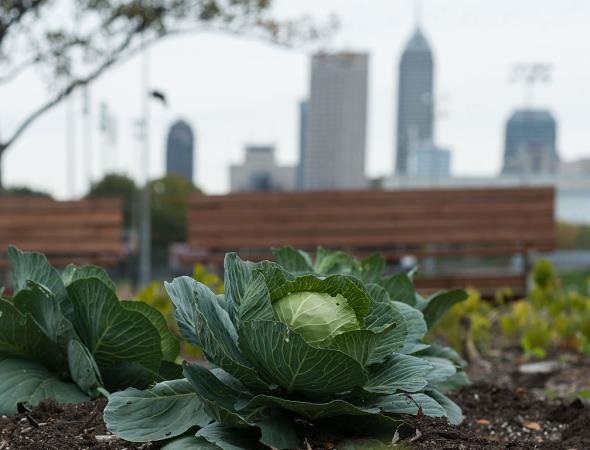
24 October 2016, Rome - FAO has welcomed the New Urban Agenda, agreed upon by countries at the recent Habitat III conference in Quito, Ecuador, and that recognizes progress in addressing the diverse challenges posed by urbanization will be key in achieving sustainable development and eradicating hunger.
"The New Urban Agenda places food security and nutrition at the center of urban sustainable development," said FAO's Regional Representative for Latin America and the Caribbean, Raúl Benítez, in a statement made during Habitat III.
Benítez highlighted that the agreement represents a fundamental step towards linking urban and rural communities in the planning and development of food systems grounded in a territorial approach that provides food security and improved nutrition for all.
Joan Clos, Executive Director of UN Habitat described the New Urban Agenda as "a vision for a better and greener urban future, where everyone has access to the benefits of urbanization".
Achieving sustainable urban development will require the implementation of sustainable food systems. For this reason, FAO, together with other partners, made substantive efforts in the negotiation process of the Agenda to ensure that a clear reference to food security and nutrition was incorporated in the outcome declaration of the Habitat conference, an event which usually only takes place every 20 years.
Linking rural and urban food security
Urbanization represents one of the most rapid and profound shifts in human history. By 2050, most of the world's population - two thirds - will live in towns or cities, but these urban centres will still depend strongly on rural communities for the provision of food. As such, food security strategies need to foster new synergies, which incorporate the necessary links between urban, peri-urban and rural areas, Benítez stressed.
Sustainable and inclusive urban economies must better engage and interact with rural economies, especially since small-scale farmers produce most of the food consumed in developing countries, including in their cities.
"It is necessary to go beyond the traditional dichotomy between urban and rural areas. City dwellers cannot be considered as mere consumers and rural communities must not be seen exclusively as producers," Benítez said.
Urban and rural planning must be integrated in ways that foster sustainable food production including a reduction of food waste in cities - currently one third of food produced globally is lost or wasted.
Habitat III has reaffirmed the increasing political momentum that recognizes the interlinkages between food security and nutrition and urban agendas. This was also underscored during the Second Mayors' Summit on the Milan Urban Food Policy Pact held in Rome on 14 October 2016, and in which concrete commitments were announced by the leaders of several cities.
This is also in line with recent development in which many cities across the globe are engaged in food-related initiatives, developing food planning strategies such as food charters, food policies, projects on school catering, urban gardening, food waste management, strengthening urban-rural linkages, as well as developing urban and peri-urban agriculture and forestry and green infrastructure.
Eradicating hunger and all forms of malnutrition
The New Urban Agenda recognizes that the eradication of hunger and poverty is a global challenge and is an indispensable requirement for sustainable development.
According to FAO, the Agenda will help countries eradicate hunger - which still affects nearly 800 million people worldwide - and malnutrition through an integrated and multisectoral approach targeting both urban and rural areas.